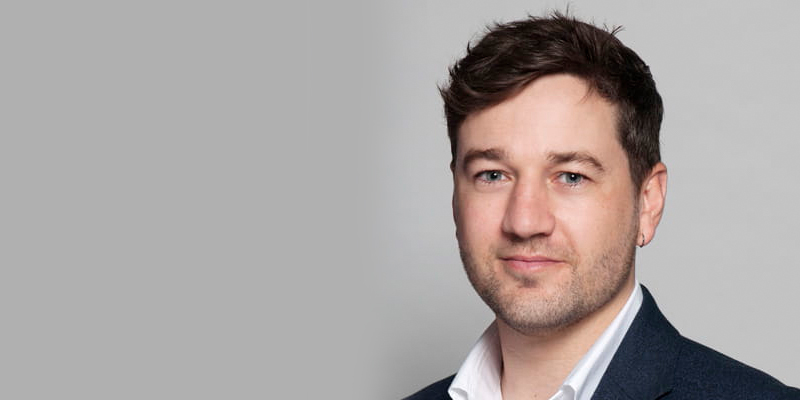Aaron Cole, senior associate at Ashurst, reflects on his move from New Zealand, life as an IP lawyer in the digital age and exploring ‘cute’ English towns

“I originally started studying biomedicine”, says Aaron Cole, a senior associate specialising in intellectual property (IP) at Ashurst. Born in New Zealand, Cole switched to pharmacology while also pursuing law on the side. “In New Zealand, you can take two degrees at the same time, so there was some self-inflicted trauma with choosing to study both!” he jokes. “But ultimately, when I graduated, I decided to start my career at an intellectual property firm, combining my passion for both science and law.”
After relocating to the UK, Cole worked at a Magic Circle firm before transitioning to Ashurst, a firm with strong ties to Australia following its 2012 merger with Aussie outfit Blake Dawson. “I made the jump over to the UK at the end of 2021, working in the commercial IP practice at Linklaters for a couple of years. But, when the opportunity came to join Ashurst’s IP team, where there is a strong focus on growth, I was really excited to be a part of that,” he explains. “I’ve found myself in a diverse practice that covers a wide range of work. We handle a significant amount of corporate and commercial matters, where we are working on complex M&A deals and IP heavy licensing and joint venture projects, but we also have an advisory branch focused on trade mark filing and strategy. Additionally, our disputes practice is expanding, particularly in trade mark and copyright cases,” he tells me.
So why IP? “I’ve always been very sciences orientated,” Cole replies. “My subjects at high school were chemistry, biology, physics and sports sciences, and then I studied pharmacology at university. However, a flatmate of mine at uni was studying law and I thought, ‘I could definitely do this!’” he explains. “While at uni, trying to figure out how to reconcile these two interests was quite challenging until I came across IP.” Now part of a legal team at Ashurst that’s filled with scientists, he seems to have found the ideal balance between his interests. “The partner I work for has trained as a doctor, and another senior associate in my team has a chemistry and biomolecular background. So together, we have a really strong interest and background in life sciences,” says Cole, “although that’s not necessarily a requirement for a career in IP”.
Moving the conversation on, I ask Cole what opportunities there are for him in the UK in comparison to Australasia. “You might have noticed that there are quite a few Kiwi and Aussie lawyers practicing in the UK!” he says laughing. “And it seems like a bit of a rite of passage, to be honest! There are a few reasons why we come over,” he says. “Firstly, the size of the market in the UK, and especially London, means that you get exposure to work that you would never get your hands on at home,” Cole explains. But it’s not just the work that’s attractive. “On a more personal level, a huge draw is the access to Europe. If you want to see continental Europe or travel around the UK, you’re committing to a 24-hour flight from NZ! So naturally, being able to explore so many cultures so close to the UK is a big attraction.” Recently, he continues, “I’ve been travelling a lot within the UK, and I’m starting to discover how cute the little towns are here!”
Between tackling legal work and exploring the UK, Cole is also about to start studying for a masters’ degree in IP at Oxford University. “I have a genuine interest in IP, and I’m looking forward to doing work that’s a bit more academic,” he says. “A master’s degree will allow me the space to think more theoretically. With the rapid advancements in generative AI models, there are fascinating developments in IP, and I enjoy diving deep into these issues,” Cole explains. “At this point, I feel that the law is struggling to keep pace with the rapid changes we’re witnessing. Common law is meant to evolve alongside society, but with the speed of technological advancements, there are growing concerns about whether the law is sufficient in this context.”
Cole goes on to explain how IP practices will benefit from this ‘swirling’ uncertainty. “There’s a huge opportunity for young lawyers to be at the forefront of building the use of AI internally within firms. They’ll be the ‘young guns’ who’ll be able to show the ‘old boys’ how to work more efficiently in the new digital age,” Cole predicts. But in wider terms, there’s going to be a lot of change in the legal frameworks surrounding AI. “This means that lawyers working in the practice will need to become flexible and agile. They’ll need to respond to the needs of their clients with an informed eye, and naturally, law firms will also want to be at the forefront of offering this advice,” Cole explains. “Ashurst is really spearheading this approach in terms of its emphasis on innovation throughout its legal practices.”
“Being able to go away and think about these complex legal issues facing the future of IP law in an academic environment allows me to bring this knowledge to the IP practice at Ashurst,” says Cole. “When clients come to us for advice on novel issues, we’ll already have the knowledge to be able to tackle upcoming changes.”
Bringing the interview to a close, I ask Cole what he wishes he’d been told at the start of his career. “Take advantage of all the resources that you have available to you; I include people in that,” he shares. “Coming in as a trainee, invest into relationships with the associates and partners in your teams. It means a lot to understand their stories, and why they came into the law. You can learn so much by just investing in these relationships on a deeper level,” Cole divulges. “People are so happy to answer these questions, so don’t be afraid of breaking down those walls.”
Meet Ashurst at ‘Outpacing change — With Ashurst’, a virtual event taking place on Thursday 12 September. Apply now to attend
About Legal Cheek Careers posts.


